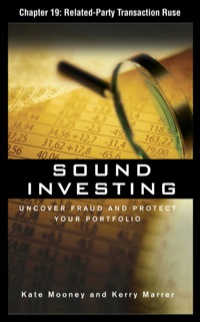Question
1. Consider the following statements: I. Per COSO, Control Activities are the policies and procedures that help insure that managements directives are carried out. II.
1. Consider the following statements:
I. Per COSO, Control Activities are the policies and procedures that help insure that managements
directives are carried out. II. A Reliance Strategy is used when control risk is considered High.
a. I is true; II is true
b. I is true; II is false
c. I is false; II is true
d. I is false; II is false
2. Management's attitude toward aggressive financial reporting and its emphasis on meeting projected
profit goals most likely would significantly influence an entity's control environment when
a. Management is dominated by one individual. b. External policies established by parties outside the entity affect its accounting practices. c. Internal audit personnel have direct access to the board of directors and the entity's management. d. The audit committee is active in overseeing the entity's financial reporting policies.
3. The documentation of an auditor's understanding of internal controls a. Is optional. b. Must be exclusively in either narrative, questionnaires, or flowchart form. c. Must include flowcharts. d. Can include any combination of narratives, questionnaires, or flowchart.
4. To obtain evidential matter about the operating effectiveness of controls, an auditor uses a variety
of techniques including:
a. Analytical procedures
b. Confirmation
c. Recalculation
d. Reperformance
5. Which of the following statements is correct regarding internal control?
a. A well-designed internal control environment ensures the achievement of an entitys control
objectives.
b. An inherent limitation to internal control is the fact that controls can be circumvented by
management override.
c. A well-designed and well-operated internal control environment should detect collusion
perpetuated by two people.
d. Internal control is a necessary business function and should be designed and operated to detect
all errors and fraud.
See CPA Exam materials. [try Mod 2 #23]
6. Consider the following statements:
I. A Control Deficiency exists when the design or operation of a control does not allow management
or employees, in the normal course of performing their assigned functions, to prevent or detect
and correct, misstatements on a timely basis.
II. A transaction (audit) trail includes the documents and records that allow an auditor to trace a
transaction from its origination through to its final disposition, or vice versa. [Statement is TRUE}
a. I is true; II is true
b. I is true; II is false
c. I is false; II is true
d. I is false; II is false
7. Which controls apply to the processing of individual applications, such as sales or payroll, and
help ensure the completeness and accuracy of transaction processing, authorization, and validity.
[see page 204]?
a. Application controls.
b. Data Capture controls.
c. General controls.
d. Output controls
8. After obtaining an understanding of internal controls and assessing control risk of an entity, an
auditor decided not to perform tests of controls for purposes of the audit. The auditor most likely
decided that
a. the available evidential matter obtained through tests of controls would not support an increased
level of control risk.
b. A reduction in the assessed level of control risk is justified for certain financial statement
assertions.
c. It would be inefficient to perform tests of controls that would result in a reduction in planned
substantive procedures.
d. The assessed level of Audit Risk is deemed too low.
9. All of the following are control deficiencies except: a. Absence of appropriate reviews of transactions.
b. fixed assets are financed with long-term debt.
c. Inadequate documentation of the components of internal control.
d. The absence of an internal process to report deficiencies in internal control to management on a
timely basis. e. All of the above represent control deficiencies.
10. Which of the following best represents a walkthrough?
a. The controller reviews the bank reconciliation, and the resulting journal entries, prepared by the
accountant.
b. The auditor walks the production line to find inefficiencies in the inventory process and reports
them to management
c. The controller takes a sample of write-offs to ensure they have been adequately documented and
recorded.
d. The auditor traces three purchasing transactions from the purchase order to the financial
statement for observation and understanding.
Step by Step Solution
There are 3 Steps involved in it
Step: 1

Get Instant Access to Expert-Tailored Solutions
See step-by-step solutions with expert insights and AI powered tools for academic success
Step: 2

Step: 3

Ace Your Homework with AI
Get the answers you need in no time with our AI-driven, step-by-step assistance
Get Started


